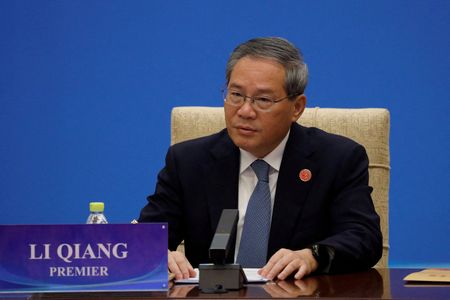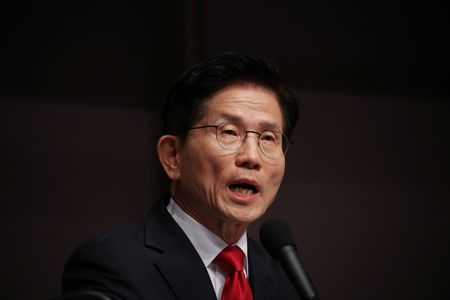HONG KONG (Reuters) – U.S. President Donald Trump has said he would raise the case of jailed Hong Kong activist and former media tycoon Jimmy Lai as “part of the negotiation” with China over trade and tariffs, a move that could further stoke tensions with Beijing.
“I think talking about Jimmy Lai is a very good idea,” Trump told radio host Hugh Hewitt on Wednesday. “We’ll put it down, and we’ll put it down as part of the negotiation.”
Top senior U.S. officials are due to meet with China’s top economic official on Saturday in Switzerland, a fledgling step amid a trade war stemming from Trump’s often chaotic tariff policies that have hurt the global economy and roiled markets.
Trump, however, said he wasn’t willing to cut Chinese tariffs to get Beijing to the negotiating table. Adding Jimmy Lai’s case into the mix — long a diplomatic friction point between the two sides — could bring further complications.
“Look, they (China) want to make a deal so badly. That, I can tell you. But we’ve been talking,” Trump said during the radio interview.
The trial of Lai — a longstanding critic of the Chinese Communist Party — has shone a spotlight on a sweeping crackdown on dissent in Hong Kong following China’s imposition of a national security law (NSL) in 2020.
Countries such as the U.S. and Britain have called for Lai’s release and say his trial amounts to political persecution.
Beijing rejects these claims and says Lai is getting a fair trial under the NSL, which it says has brought stability to Hong Kong after mass pro-democracy protests in 2019.
Lai, 77, the most high-profile China critic to face prosecution under the NSL, has pleaded not guilty to his charges including conspiracy to collude with foreign forces.
Lai, who is founder of the Apple Daily newspaper that was forced to close after a police raid and asset freeze in June 2021, rejects allegations by the prosecution that he had lobbied the U.S. to impose sanctions on Hong Kong.
Before being elected, Trump pledged last year to “one hundred percent” get Lai out of China.
Lai’s son, Sebastien said his father’s health has declined during harsh, solitary confinement.
In January former U.S. Vice President Mike Pence, speaking at an investor forum in Hong Kong, called on Beijing to “send a message of goodwill” to the U.S. by freeing Lai.
(Reporting by James Pomfret and Jessie Pang; Editing by Gareth Jones)











